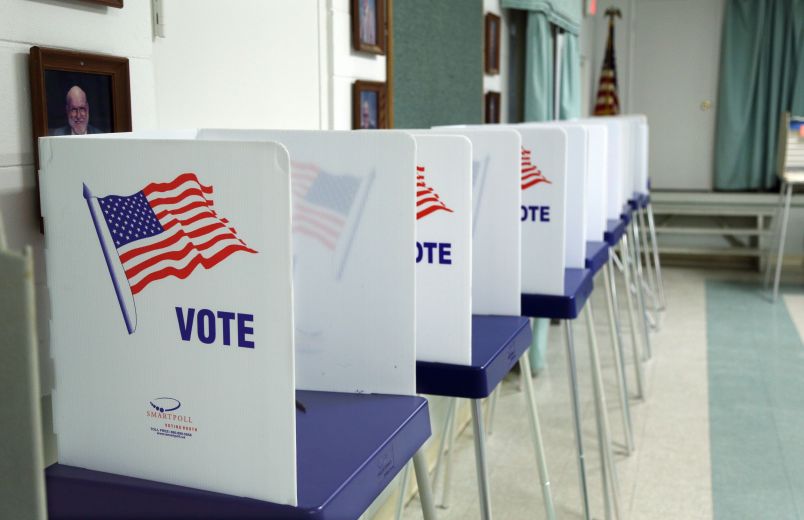DES MOINES, Iowa (AP) — Iowa’s new voter identification law violates the state constitution and will make it harder for some people to cast a ballot, plaintiffs alleged in a lawsuit filed Wednesday.
The suit marks the first legal challenge against the ID requirement and its provisions, which were passed last year in Iowa’s new Republican-controlled Legislature. Parts of the law went into effect this year and will play a role in the state’s upcoming June 5 primary election. A requirement to show ID in order to cast a regular ballot goes into effect in 2019.
It’s unclear how an injunction request to halt some of the law’s provisions would impact the upcoming primary. Early voting began weeks ago.
The League of United Latin American Citizens of Iowa and Taylor Blair, an Iowa State University student, are named as plaintiffs in the suit. Priorities USA Foundation, a national organization involved in other voting-related lawsuits, is paying for the litigation.
Iowa Secretary of State Paul Pate, the top elections official and a major proponent of the law, is named as a defendant in the lawsuit. Pate’s office did not respond to a request for comment, and a spokesman said he didn’t know if the office would have a statement at a later time.
The lawsuit claims the law will disenfranchise eligible voters because some of its provisions are unclear or impose unjustified restrictions. The lawsuit highlighted new rules for elections officials to verify ID signatures, new requirements for absentee voting and the elimination of straight party voting. It argues the cumulative impact will be longer lines and waiting times at polling locations.
“Each of the challenged provisions burdens the right to vote directly and by complicating and slowing down elections administration in Iowa,” according to the lawsuit.
The lawsuit was filed Wednesday in Polk County District Court, according to Priorities USA Foundation, which provided a copy of the complaint to The Associated Press.
A spokesman for the Iowa Attorney General’s Office, which will defend the state in the lawsuit, deferred comment to Pate’s office.
When the law is fully in effect, Iowa voters will be required to show an acceptable form of identification — an Iowa driver’s license, an Iowa non-driver’s ID, a new non-photo voter card, a U.S. passport, military identification or veterans ID — to cast a ballot.
The law requires elections officials this year to ask voters for identification. It’s a soft roll-out, so someone without ID can sign an oath verifying his or her identity and cast a regular ballot.
In 2019, voters must have acceptable identification or they will have to cast a provisional ballot. Those voters will need to return to show ID within a few days for their ballot to count.
Blair, the college student, said in the lawsuit he was initially excluded from receiving a new non-photo voter card because his voter registration was erroneously mixed up with another person’s information. Blair said he later received a non-photo voter card, but he forgot to bring it to vote during an April election. While Blair was able to still vote by signing a document verifying his identity, he said the experiences burdened his right to vote.
Some voting advocacy groups have expressed concern about the law’s impact on minority groups, college students, the elderly and disabled individuals. Pate has strongly argued no eligible voter will be denied the right to vote.







The burden of proof that i am not a citizen with the right to vote rests with Kris Kobach. Otherwise, STFU!
In Republican World, you have to prove your citizenship. Although that violates Federal Law…Kobach learned that painful lesson a few weeks ago.
There will be no burden on anyone with a couple weeks of time and a few hundred spare dollars to spend untangling their status. Which all poor, disabled and old people naturally do.
Objection! Assumes ability to learn not in evidence.
I am hoping that we’ll fix this mess after November, here in Iowa. Though we are a thousand miles from the Atlantic Ocean I expect the Blue wave to wash over most parts of this state in November.